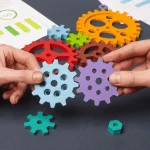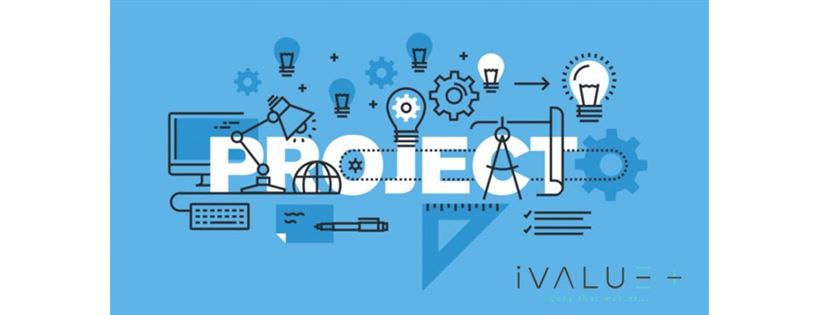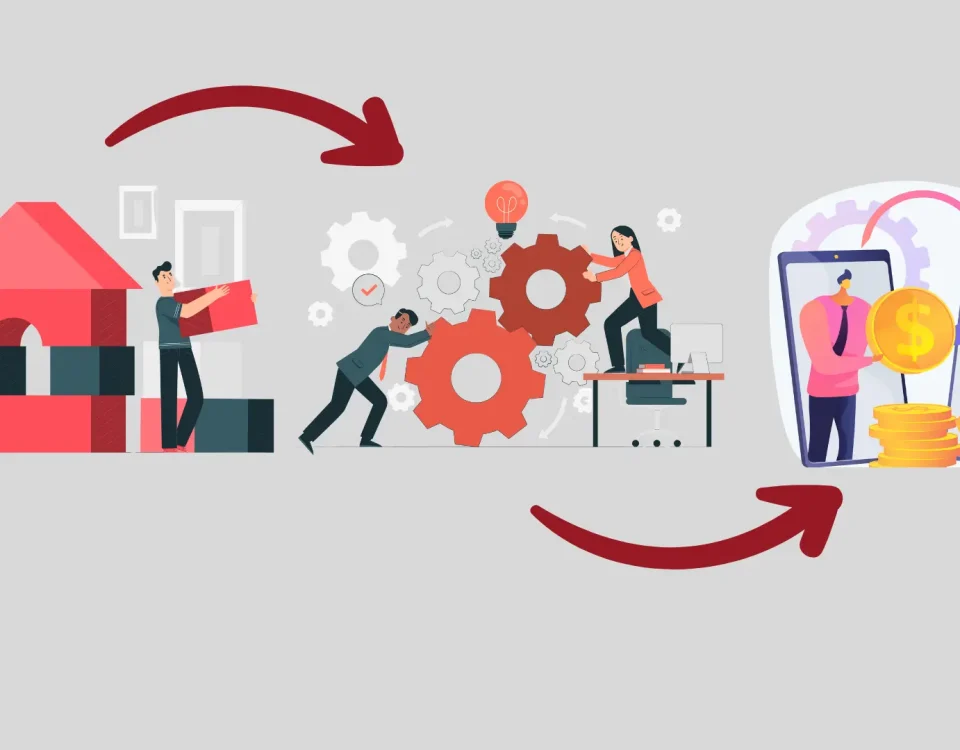
Improve Operational Discipline
October 26, 2020
Organizational Anxiety
November 24, 2020What is Project Management Workflow?
Within the framework of your Project Management plan, workflow basically refers to the series of steps that needs to be taken to complete tasks, and how you move between them.
A project is usually a one off, time bound enterprise that serves a very specific purpose and results in a very specific outcome. For example, a biannual large scale outdoor event is a time bound project, serving a specified purpose and an outcome. When both the purpose and outcome have been reached, the event is over for that year. The project management of the event is basically handling of all the activities related to it.
Project management workflow refers to the process of ordering tasks and activities between key milestones into an efficient and meaningful sequence.
Workflow is part of our daily life. It is happening right now, as you sit at your desk, writing that email to a vendor or following up on a task a colleague is responsible for. Like projects, all businesses and organizations have ongoing processes of workflow. Without these, it’s impossible to achieve anything!
The successful completion of individual tasks usually requires that projects pass through a series of stages. Regardless of size and complexity, all independent projects have their own patterns of workflow. Effective project management workflow systems should facilitate you to organize and record the stages of workflow. A good workflow process will create a series of steps directing you and your team towards a final goal. The most efficient and best lit path will ensure the smoothest ride with fewer hurdles.
Workflow Management vs. Project Management: Different but Both Critical
The words “workflow” and “project” have a tendency to get used interchangeably. And while they do have a lot in common, they have unique purposes. Knowing what those are will help you choose the most-efficient system, adopt the right tools, and in due course help your team succeed. Now understand workflow management, project management, and everything in between.
What is workflow management?
To understand what workflow management really means we need to first take a closer look at what a workflow is (and is not). By definition, a workflow is a series of steps that happen between the beginning and end of a task. Whether those steps are dictated by procedure, simply born out of habit, or made up along the way, a workflow represents the process of getting things done.
So workflow management is basically how we plan, organize, and execute the steps it takes to achieve a goal. It sounds a lot like project management, right? While the two have a lot in common, workflow management is about the sequence in which things happen. Progress is linear; once one step is completed, the next one can begin, so on and so forth. Recurring processes and routine objectives are best served by workflow management because it’s repetitive in nature.
Now let’s take a look at project management.
What is project management?
A project is a carefully made plan to achieve a certain goal. Whether it’s executed by an individual or an entire team, projects is likely to involve a series of tasks. These tasks are often unique to the project’s objective and can vary greatly one project to project. Each task is well defined, monitored, and assessed every step of the way.
Although steps might be consecutive, like in a workflow, projects are likely to have flexible structures complete with simultaneous open assignment and room for edits or changes and come with limitations in the form of timelines, budgets, and resources. It’s also worth noting that all projects tend to be temporary. Once the goal is achieved, the project ends. Unlike the cyclical nature of a workflow, each project has a limited lifespan that is wrapped up with some sort of deliverable.
Project management is vital because it helps keep teams on the same page about big-picture ideas. In practice, it requires strong leaders with excellent communication and organization skills as well as the foresight to predict identify and solve problems before they ever occur.
What’s the difference between workflow management and project management?
It’s not just a terminology. This section will show you all the ways workflow management and project management differs, along with some examples to further illustrate the point.
How workflow management and project management are different
1. Workflow management is measured by a task’s completion whereas project management is measured by time.
If you’re using workflow management, it’s given that the task will be done eventually, even if it’s a rush job. But if you’re using project management, your task probably has a strict, non-negotiable deadline that, if missed, could negatively impact the end result. For example, a social media workflow might begin and end with posting on Facebook, but a social media project will take into consideration how posts across all platforms work together towards a common goal.
2. Workflow management is constant; Project management has a clear beginning, middle, and end.
Projects are a series of specific set of tasks that are unique to the objectives of that particular one-time assignment only. Once those are complete, the project is over. But because workflow management is all about completing recurring tasks, each new trigger continues the cycle ahead. You may finish a particular task, but the workflow you used to do it will always stay the same and can be repeated an umpteen amount of times.
3. Workflow management is used by long-term teams however project management is used by temporary teams.
Your office email intake workflow is constant because your email is constant, so no personnel changes are required whatsoever. But once a project is over, a team can split.
4. Workflow management is often simple and straightforward but Project management is complex and layered.
If you’re hiring employees, your workflow might include posting on a job board, reviewing applications, and scheduling interviews. However, it starts to become a project when additional steps like skills exams, new workflow management training, and niche certifications are needed.
5. Workflow management focuses on connecting a series of tasks but project management focuses on planning, monitoring, and assessing the success of those tasks.
A customer service request workflow requires employees to first get details regarding the request and after that, they follow up with solutions. Once that’s complete, they have to message the client to let them know. A customer service request project might then take that information, assess its effectiveness, and monitor how this workflow does or does not support larger customer experience objective.
6. Workflow management progress is sequential but project management progress is nonconsecutive.
For an employee PTO request workflow, you must first receive a request before you can actually review it. Projects, on the other hand, include tasks that don’t necessarily rely on any triggering events.
7. Workflow management results are measured by their completion whereas project management results are measured by their quality.
Your blog-post production workflow may include sourcing keywords, coming up with a topic, and drafting the entire article. Your blog-post production project may include a holistic approach to fitting this piece into the latest content calendar.
How workflow management and project management are similar
Now that we’ve cleared that up, let’s understand all the ways these strategies are alike.
1. Workflow management and project management both can be used to complete simple or complex goals.
2. Workflow management and project management both can be used to achieve small-scale or large-scale goals.
3. Workflow management and project management both can facilitate better collaboration.
4. Workflow management and project management both can organize and simplify processes.
5. Workflow management and project management can be used simultaneously to boost productivity.
You can use workflows within projects too.
The Benefits of Project Workflow Management
• Improved productivity:
Project workflow management gives you the ability to structure the processes.
Consequently, you’ll easily improve them because the results are measurable.
Maybe you’re missing a step or two; maybe you’re making one step too many.
Whichever it is, project workflow management makes it much easier to measure performance and increase productivity.
• Improved collaboration, accountability, and stakeholder engagement:
Workflows are basically the antidote to chaos.
When you clearly structure your processes, you and your team will know who is responsible for which task, eliminating confusion and delaying to achieve the goal in the long run.
Similarly, it will be much easier to keep all the stakeholders (e.g. top management or external clients) in the loop.
• Improved knowledge sharing:
The majority of team members spend an inordinate amount of time just tracking down the information they need to complete the particular tasks.
Workflow management reduces this time, as you will create a specific process for handing over documentation and information.
• Reduced risk:
You don’t want to get blindsided by a problem two days before the actual deadline.
So if you have a workflow management process that leaves no stone unturned, you’ll know exactly what could be a potential risk or an obstacle.
This will allow you to resolve it even before it’s started creating problems.
References:
https://www.workflowmax.com/resources/guides/project-management/workflow
https://www.wrike.com/blog/workflow-management-vs-project-management/









1 Comment
Thank you for your sharing. I am worried that I lack creative ideas. It is your article that makes me full of hope. Thank you.